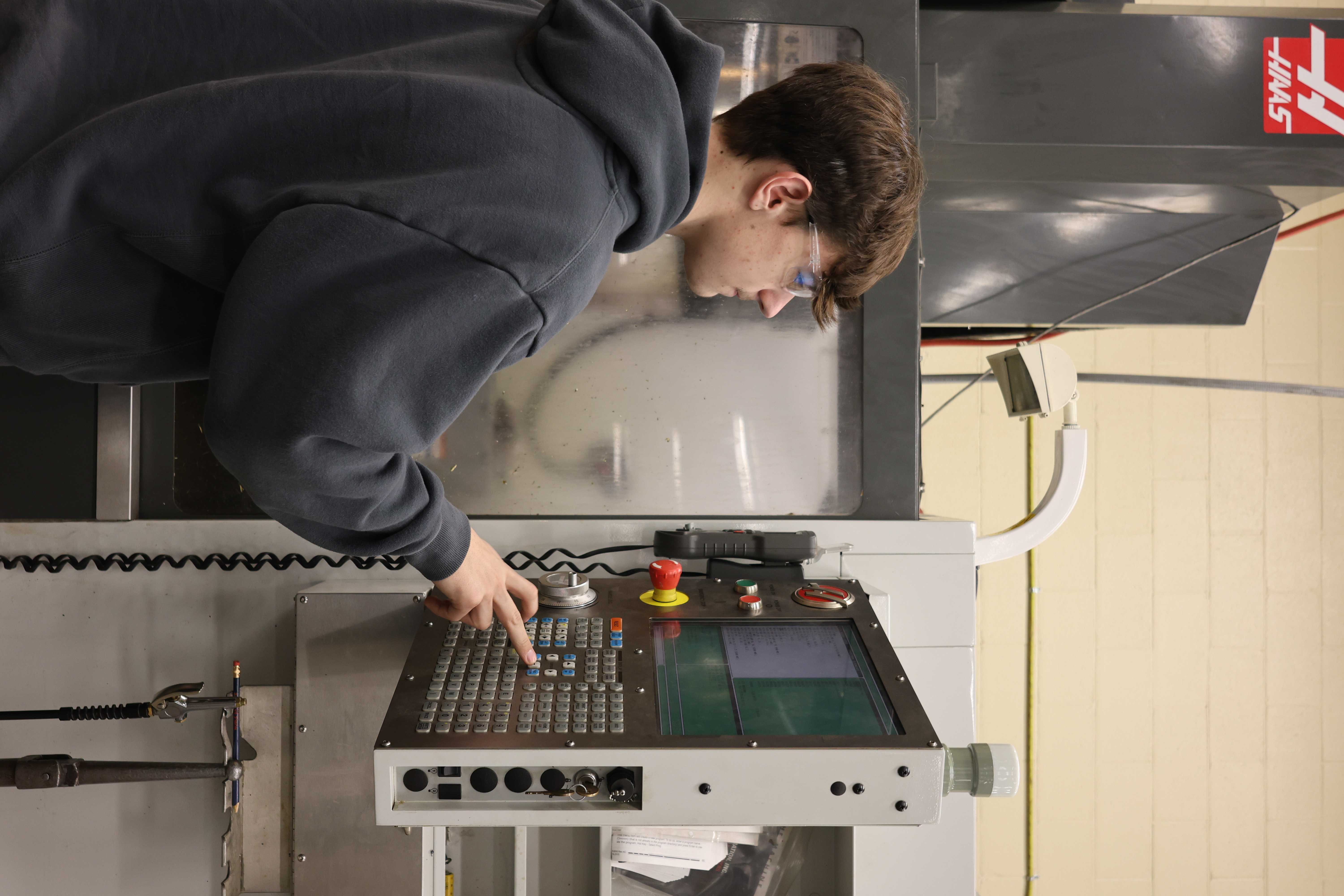Precision Machining
Instructors | College Credits | Available Certifications | Lab Fees |
|---|---|---|---|
Robert LaFollette | Central Ohio Technical College |
|
|



Invent, design, and manufacture the tools and parts for a wide range of production needs
Use advanced computer-controlled technology to create steel, aluminum, and plastic products
Solve complex engineering challenges to meet customer needs
What can I do when I graduate? | What would I do in this class? | What can I do with further training? |
|---|---|---|
|
|
|
Precision Machining students must be able to
Use math as a means of problem solving
Read and comprehend material
Meet safety requirements to operate tools
Exhibit professionalism and work place behavior
Communicate well with customers, managers and coworkers
Work independently and in teams
Instructors | College Credits | Available Certifications | Lab Fees |
|---|---|---|---|
Robert LaFollette | Central Ohio Technical College |
|
|

